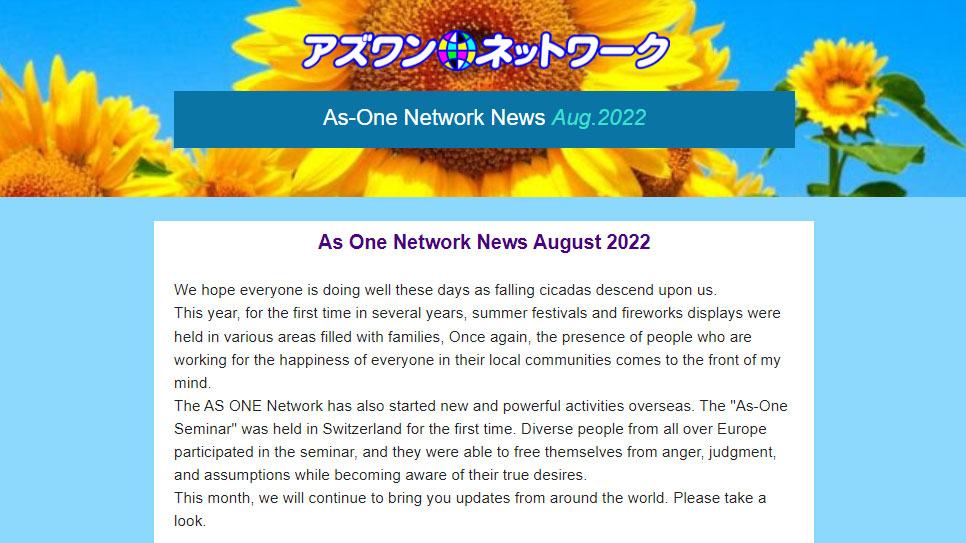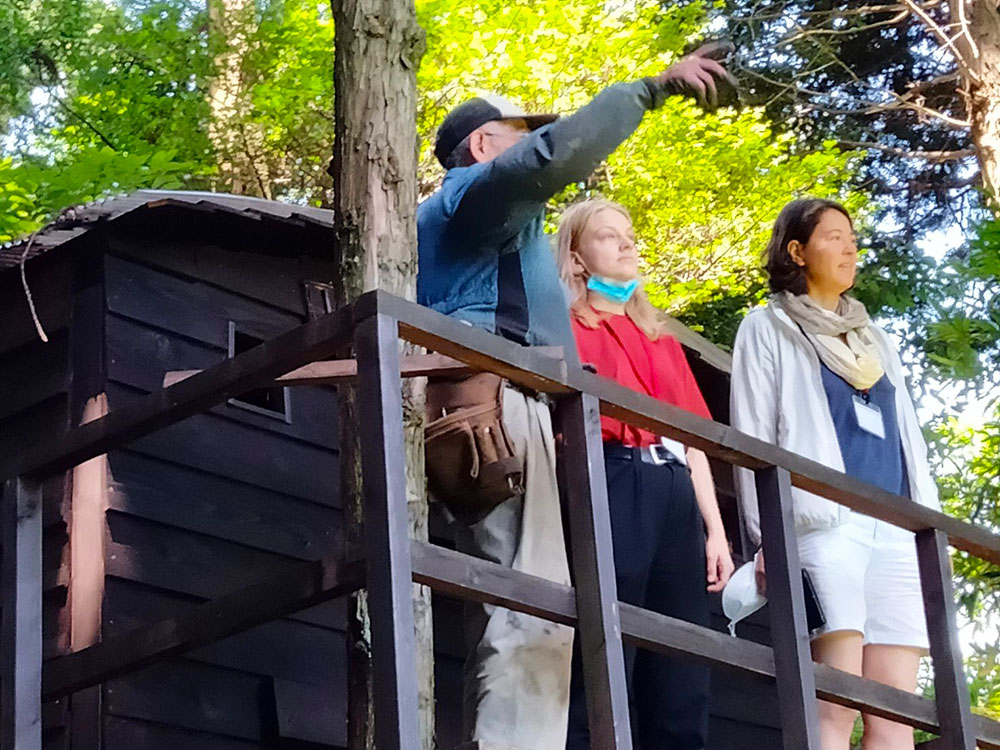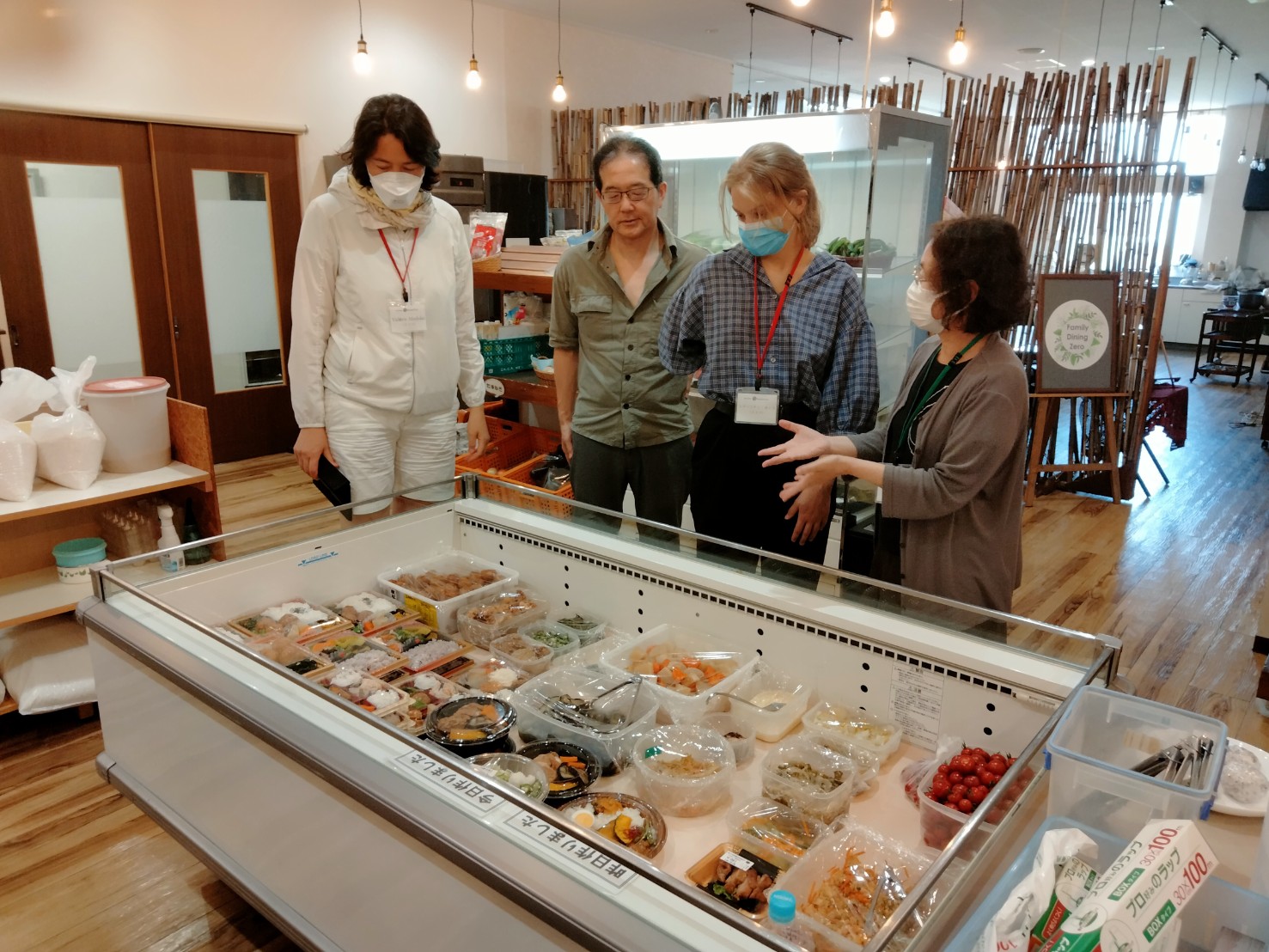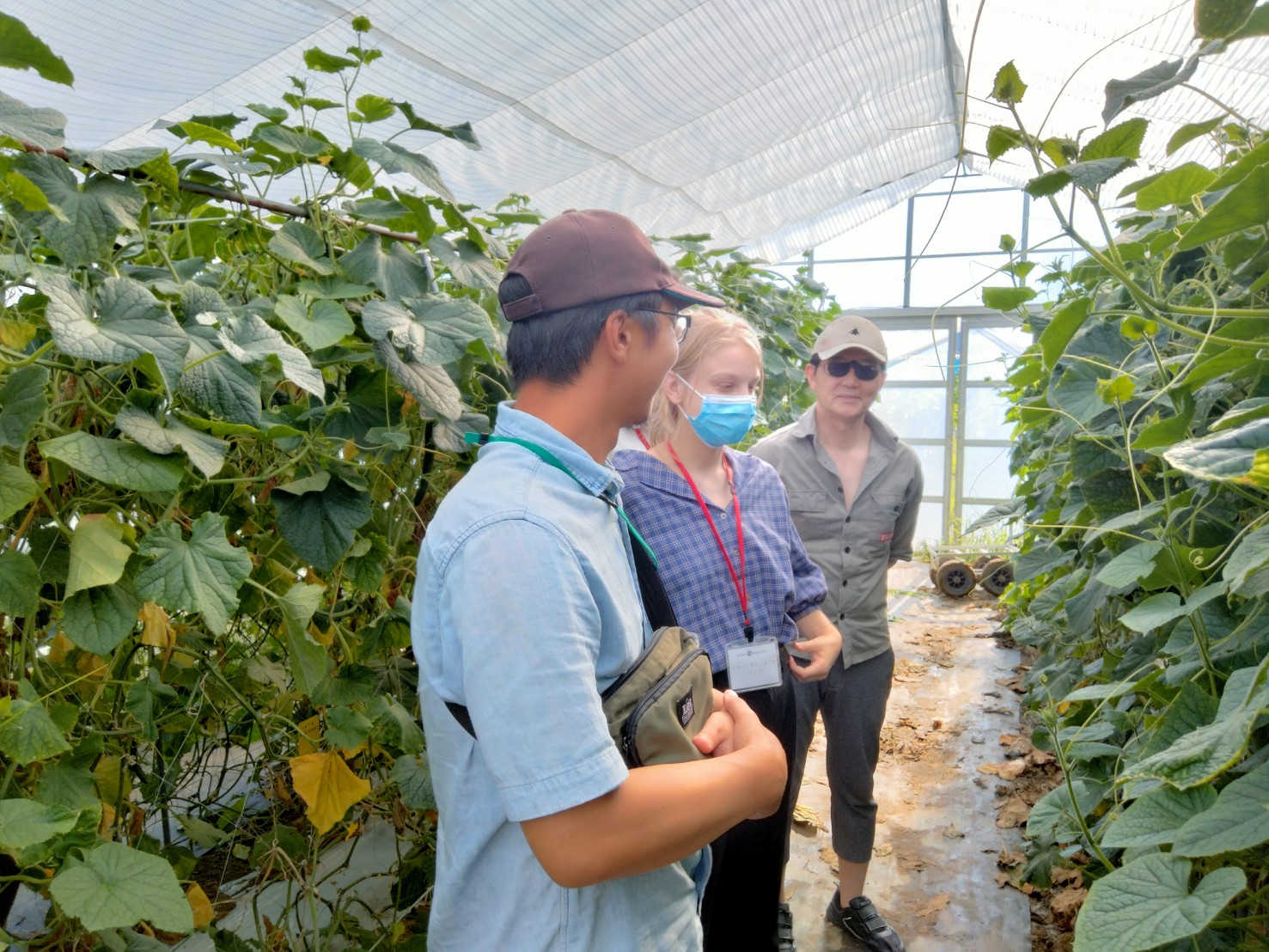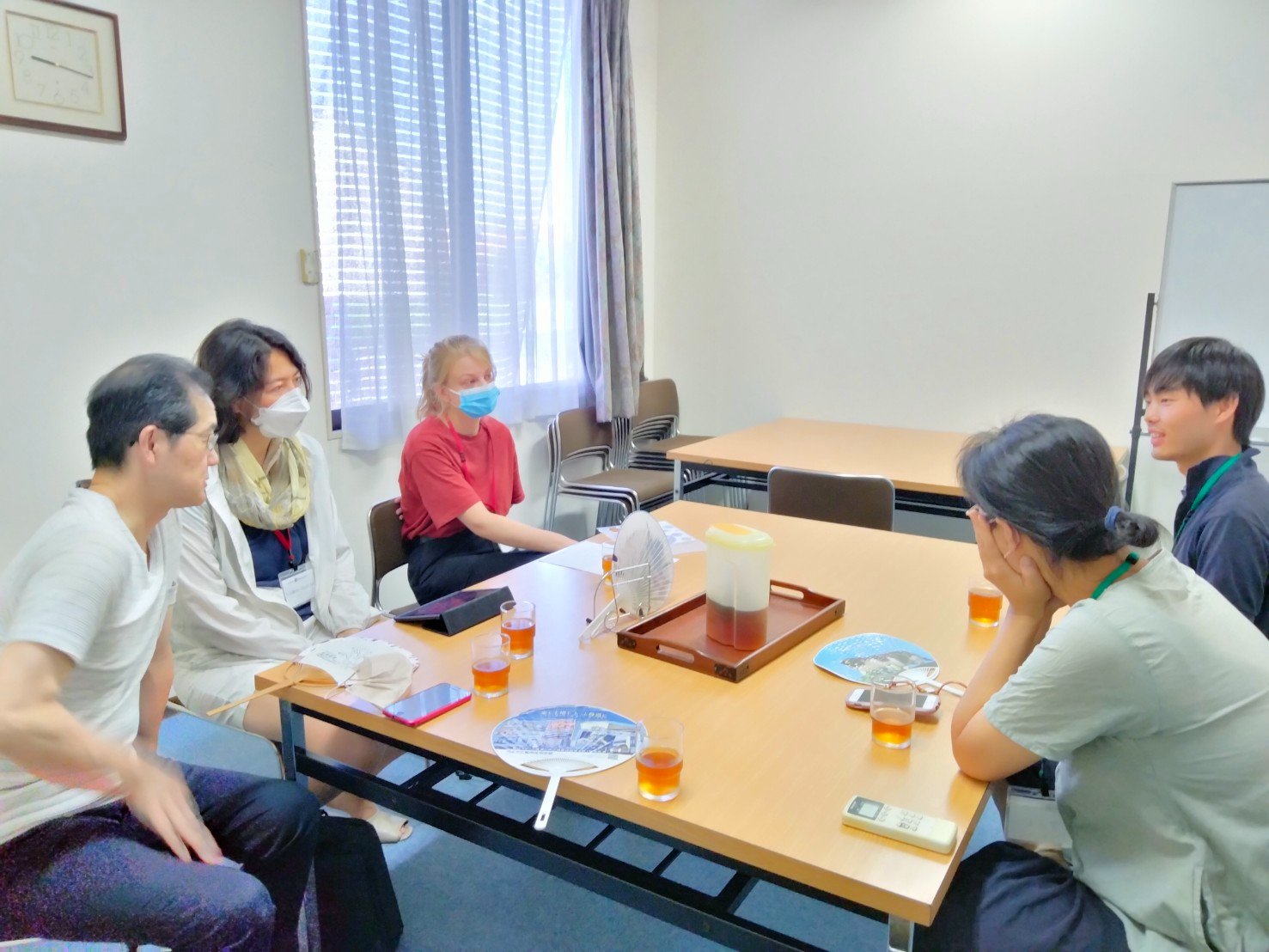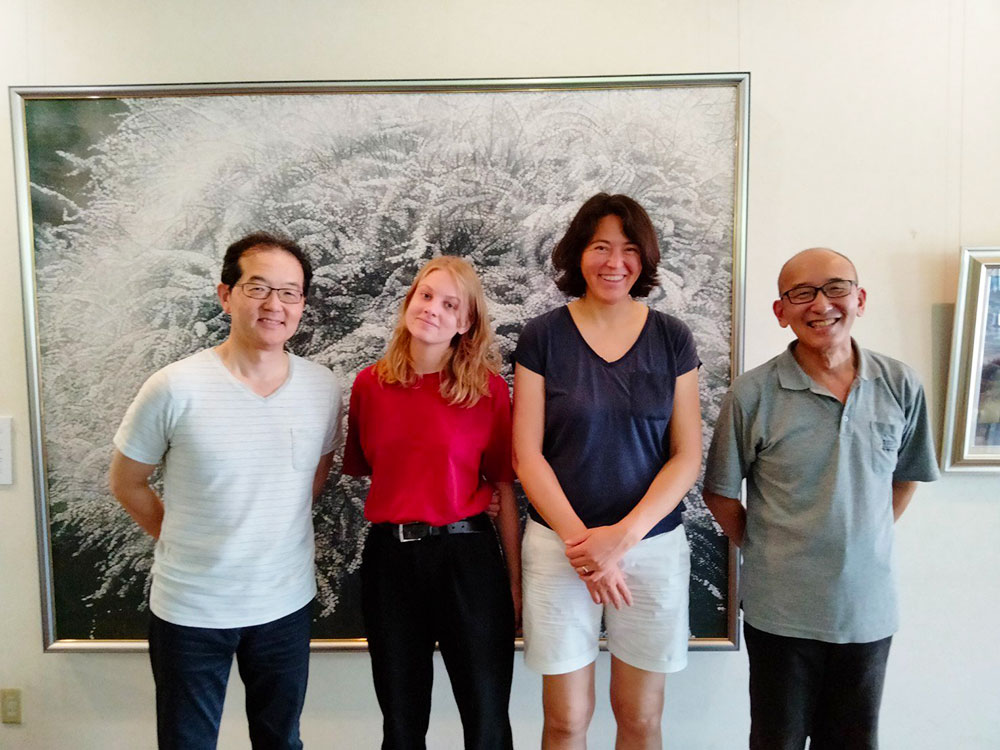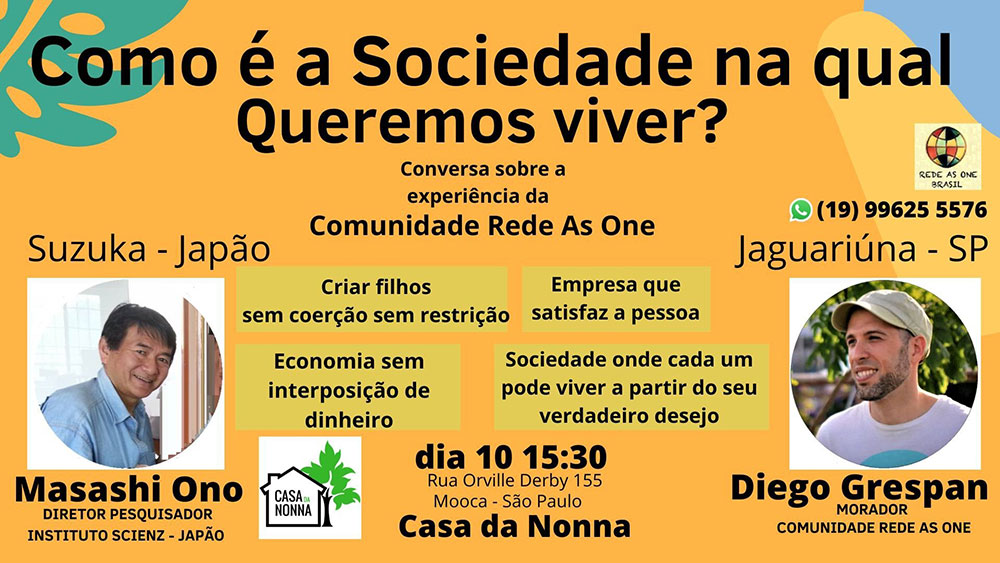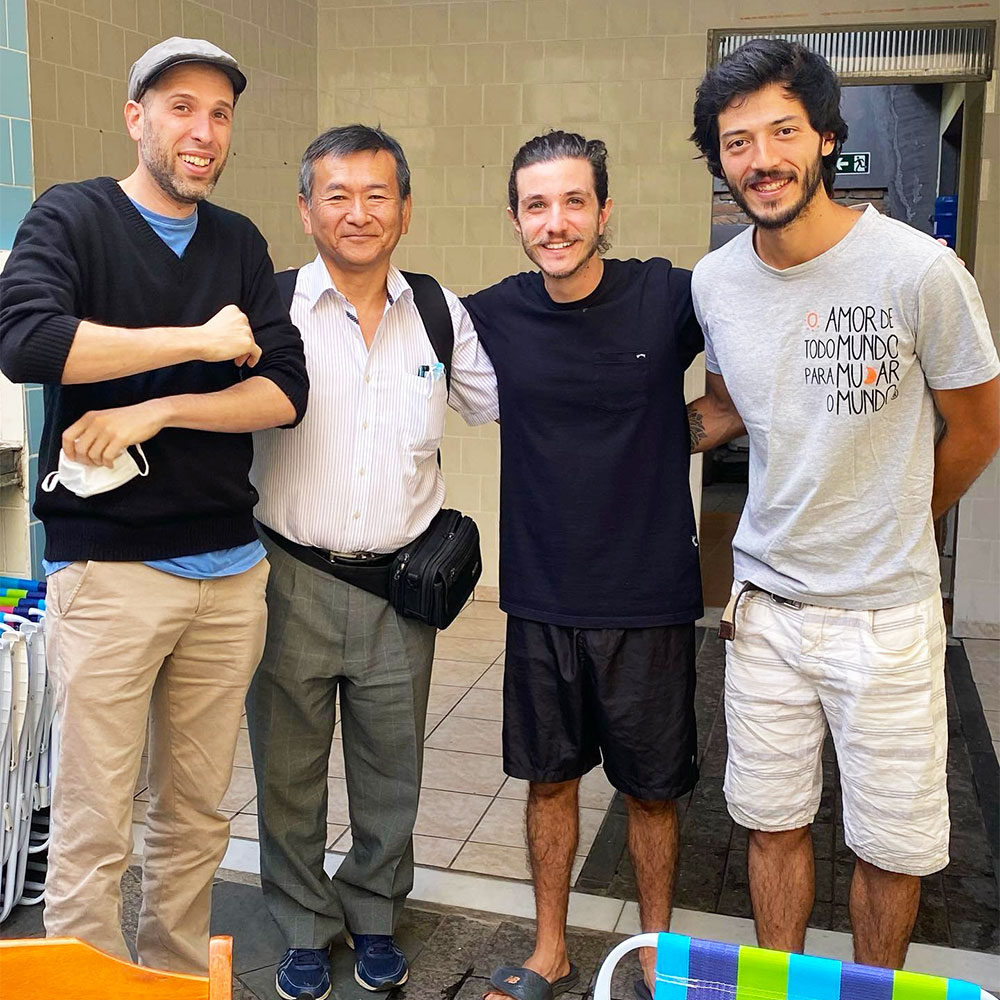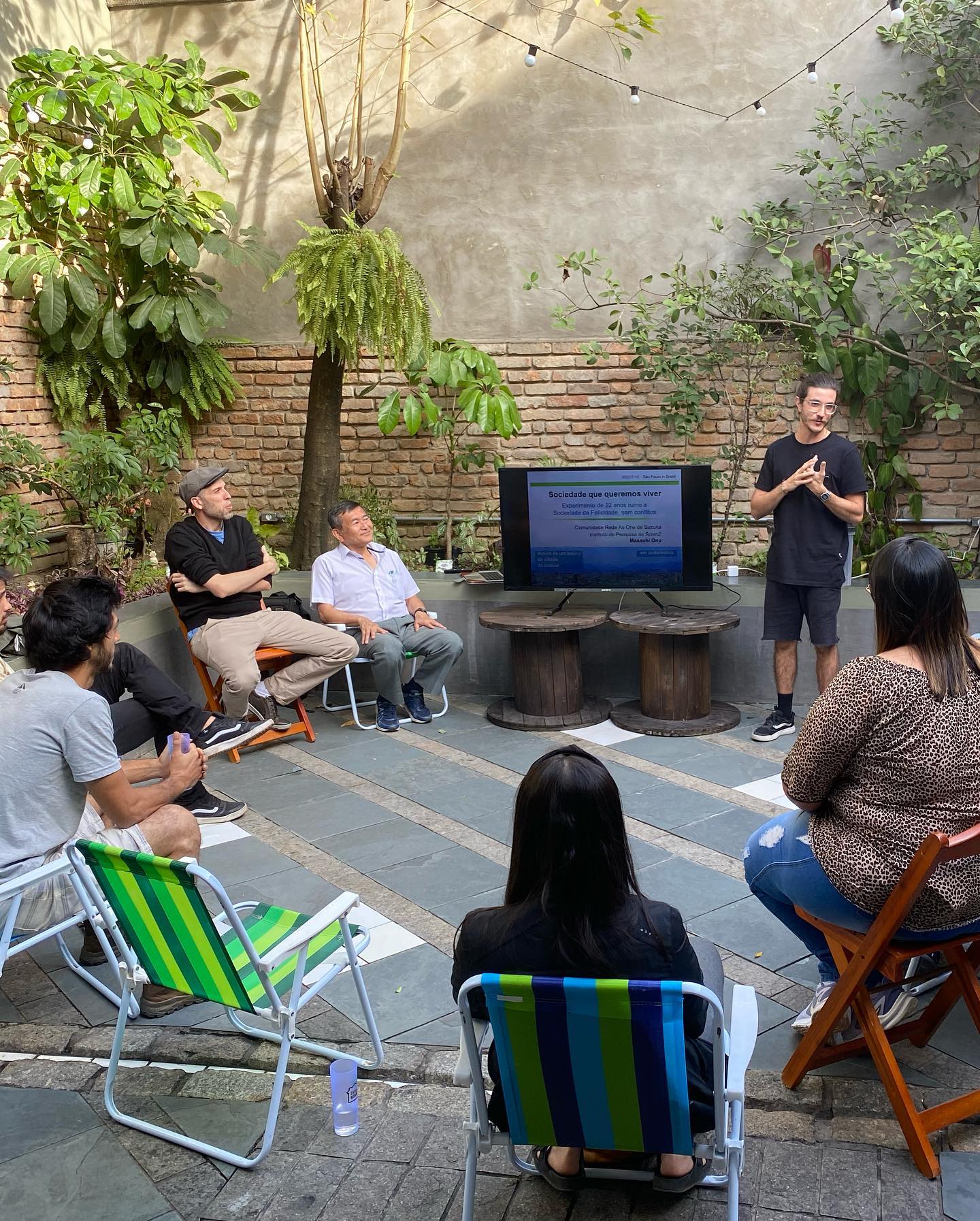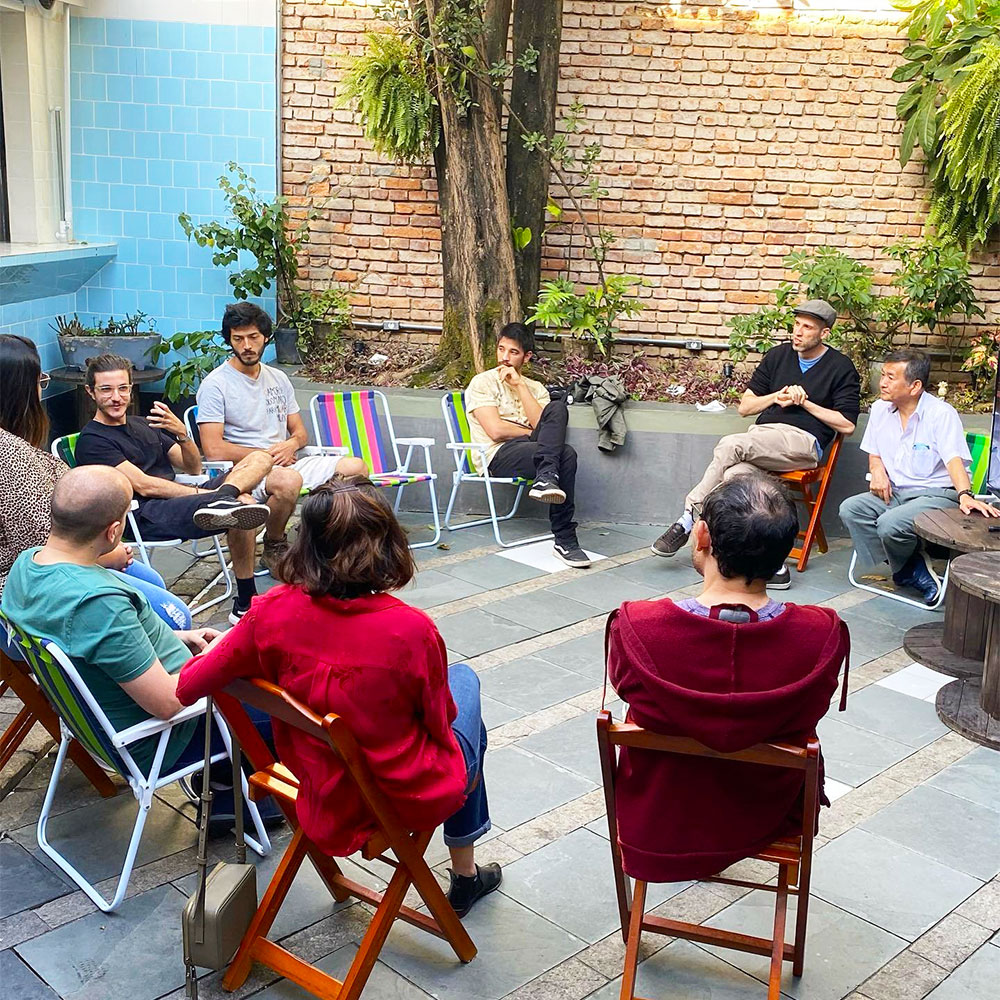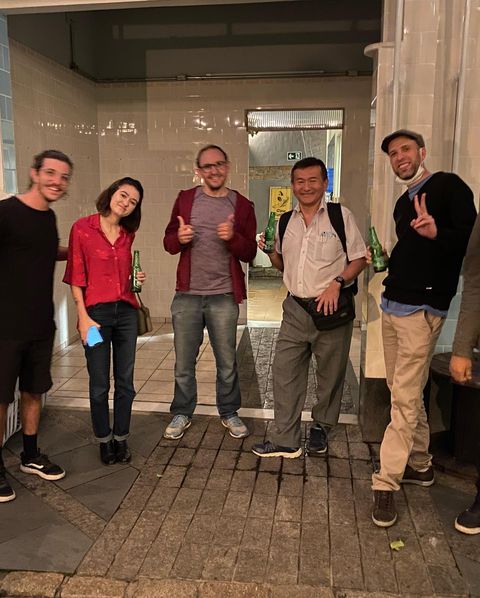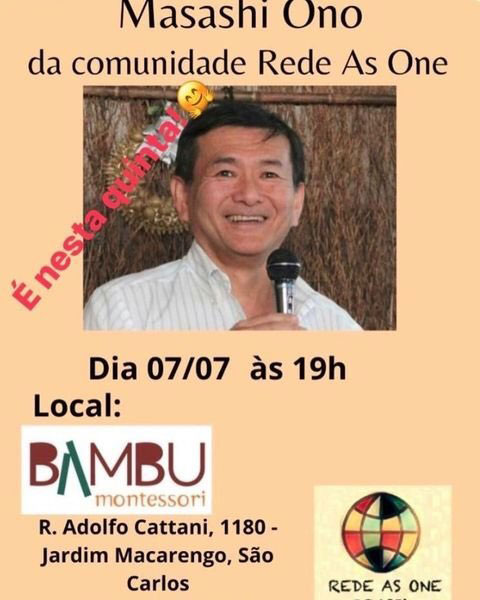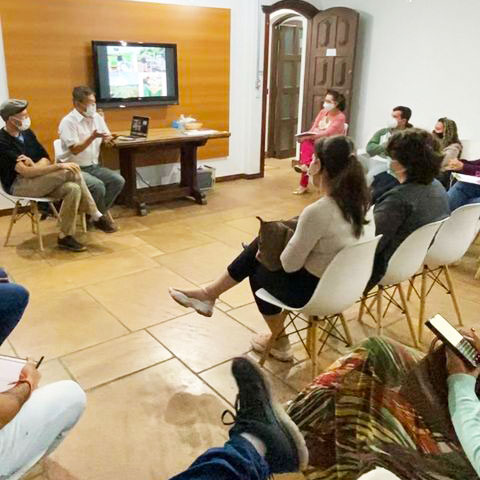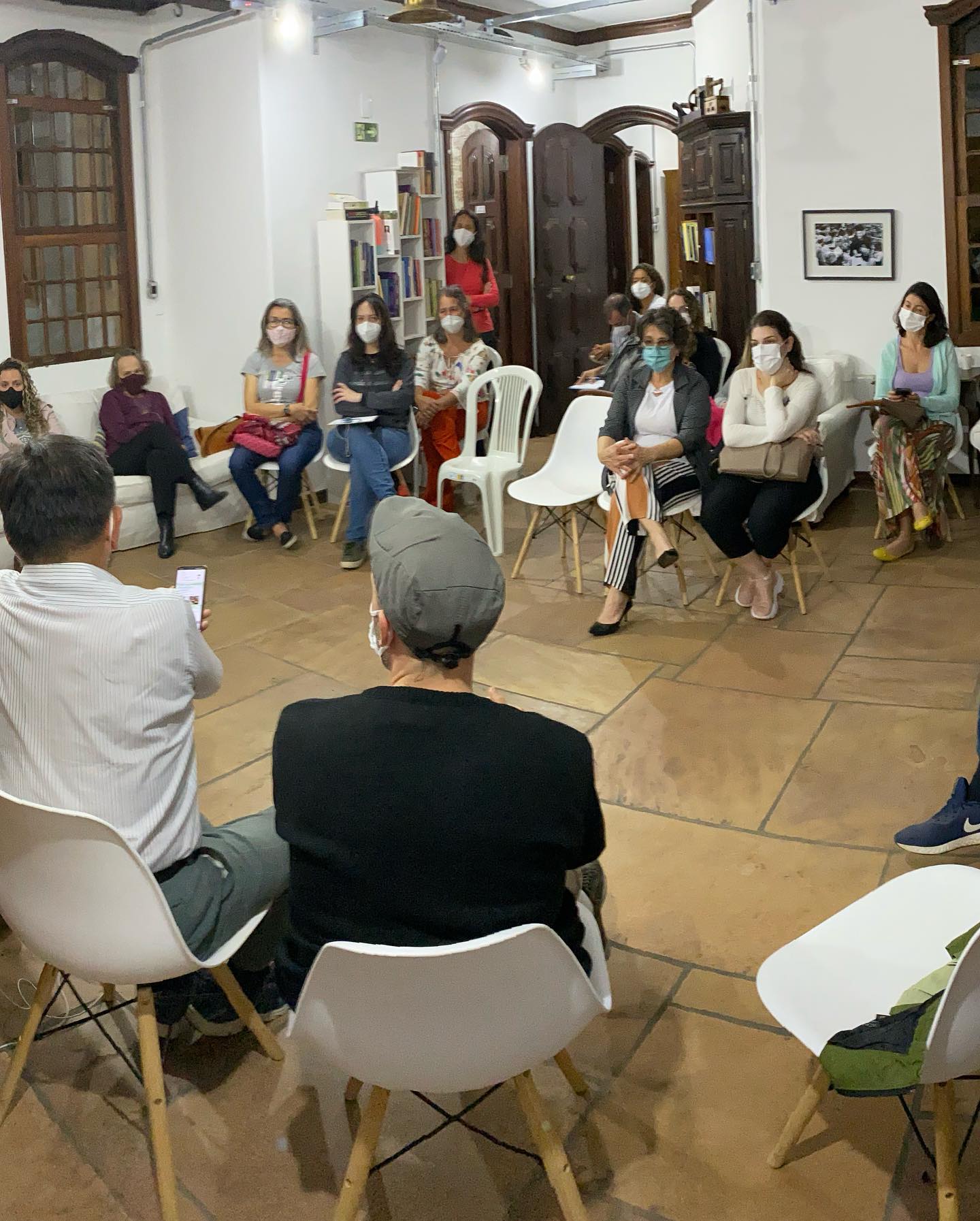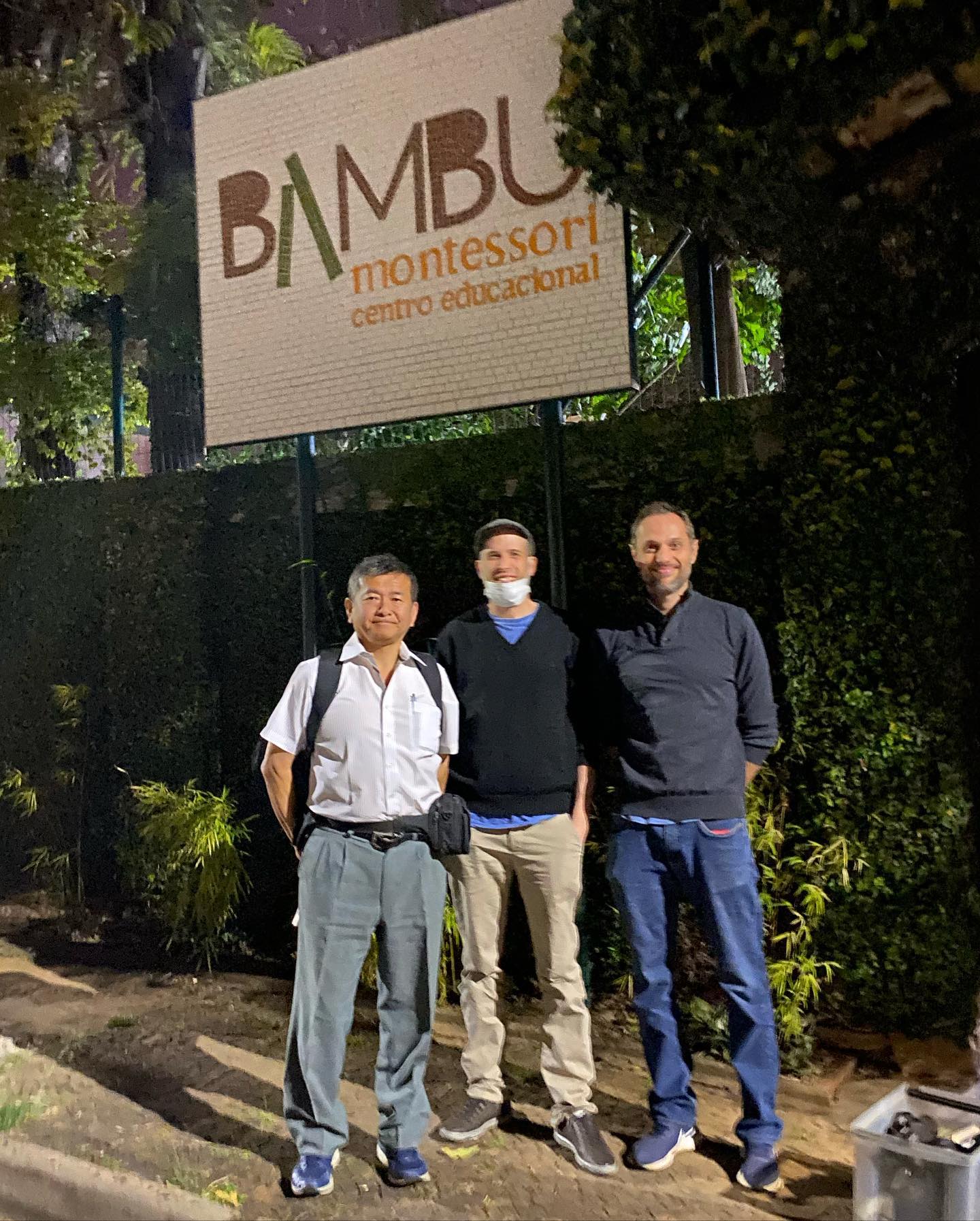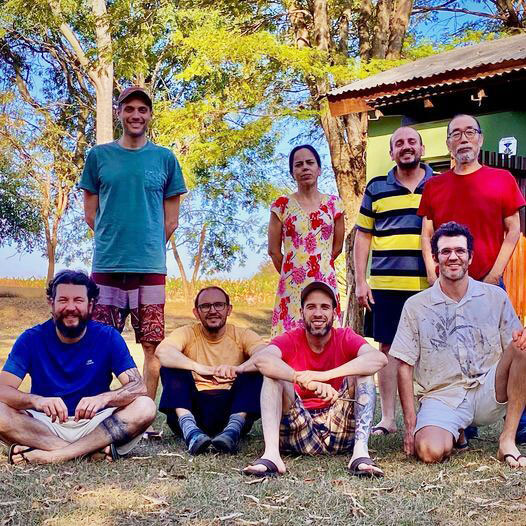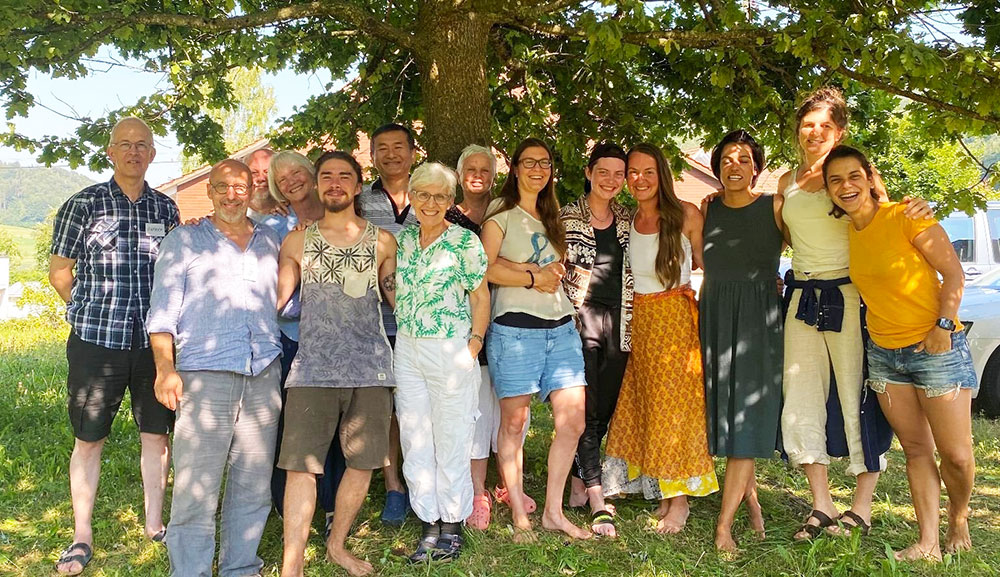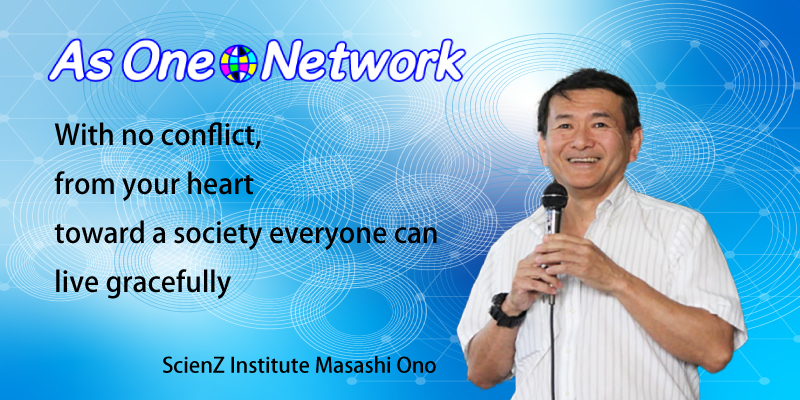Community Saijiki literary calendar
Summer Days Brief sketch
坂井和貴(Kazuki Sakai)
Community Saijiki litterature August Issue [Summer Days Brief sketch】
I woke up to multiple layers of sounds, coming from near and far, folding in on top of each other.
"Jiggidy jiggidy~ jiggidy jiggidy~ ・・・・"
I realize that midsummer has arrived.
As I opened the curtains, a cicada flew into the screen door and began to chirp.
The cicada's chirping was so loud that it vibrated the entire room.
On my way to work, I see clouds rising in the eastern sky.
The rice in the field to my right had grown to chest height, and the ears of rice were swelling.
Outside the full-length glass windows on the south side of the Suzuka Culture Station, a magnificent green curtain has formed, moderately blocking out the sunlight. Many bitter gourd fruits can now be seen.
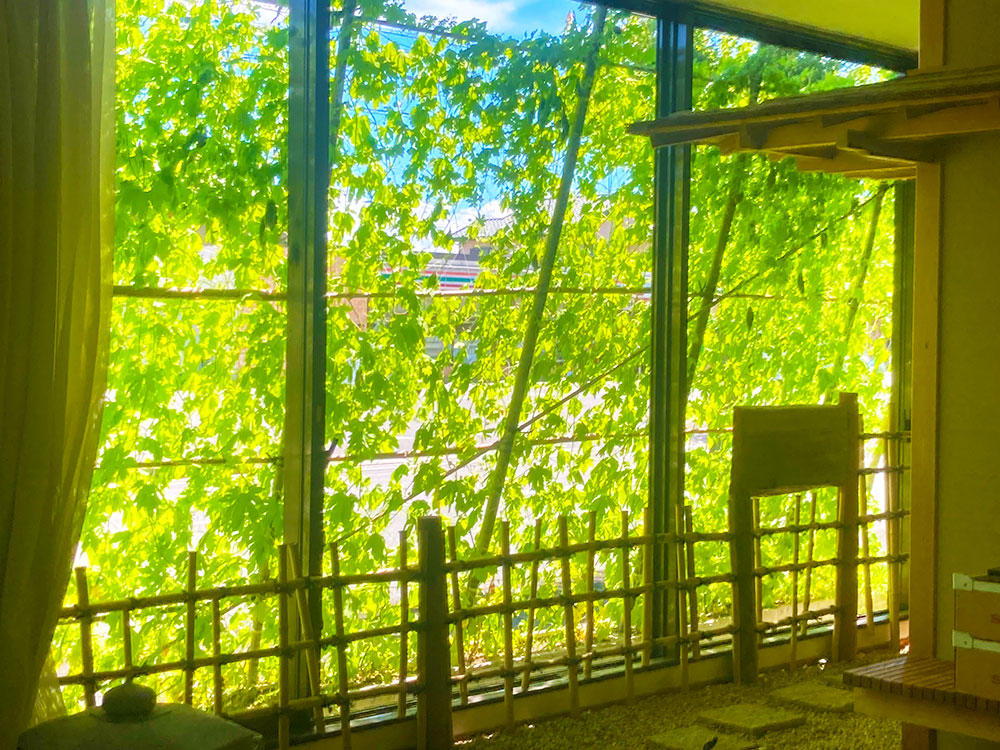 Bitter melon curtains, a summer tradition at Suzuka Culture Station
Bitter melon curtains, a summer tradition at Suzuka Culture Station
(Brief sketch, Part 1)
Valerie Madoka and Karla participated in this tour of the Suzuka community (an opportunity to see the community and get in touch with its life and people over the course of two days and one night). Coincidentally, they both came from Germany. During the tour, we met Heungmi from Korea, who has been living here for 6 years, and Tacky, who is currently studying at the ScienZ Academy...
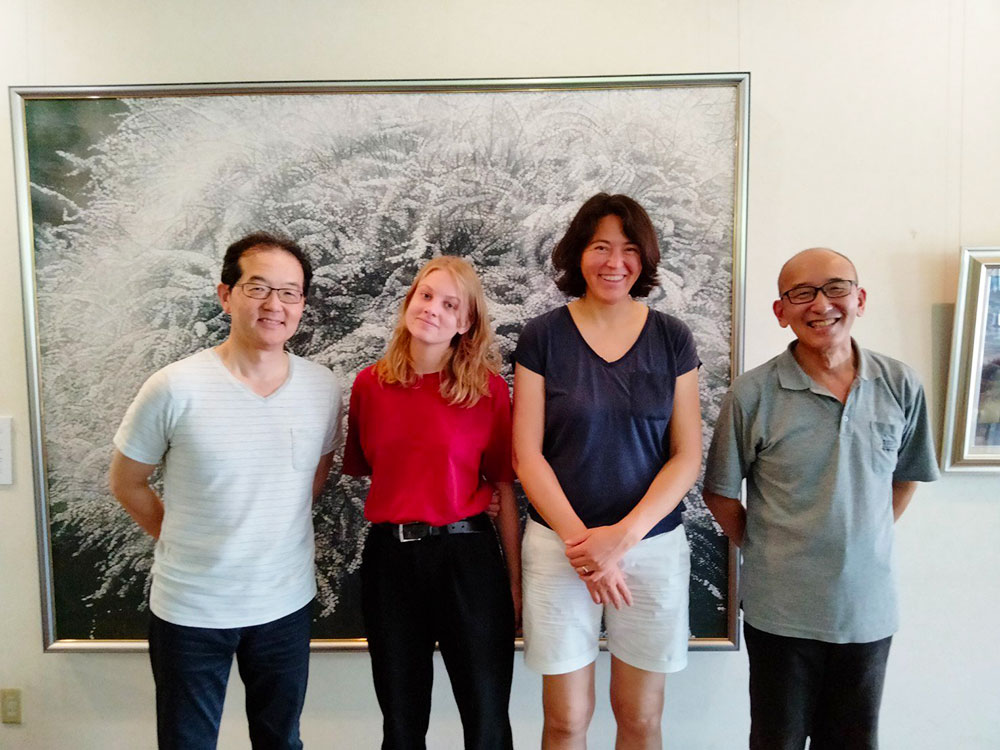 Karla and Valerie from Germany visiting the Suzuka community
Karla and Valerie from Germany visiting the Suzuka community
Heungmi.
Living these days, I think...
I started to feel that I would like to have a child and raise it, and I started going to the hospital to do so -...I wonder how I came to think that way, and I think it might not have come up if I were on my own. I heard from my mother, "I really enjoyed having you and raising you, and I want you to experience it too," and my partner said, "I would like to live with our children in our home," and I heard from a number of other people in the community that they would like to do so, and that's how I felt. I guess I started to feel that way!
When we were discussing the next appointment date and time, the doctor would not just say when and when, but he would say, "I think it would be better to see Heung-mi a little earlier, so how about this day? " The doctor will think of something and say, "How about this day? That's both Dr. ○○ and Dr. XX. It's like it's not about me, even though it's about my body. It struck me as wonderful.
I don't know if I will actually be able to have children or not, but it's fun to see how these people are thinking and moving about me as if it were their own thing, and how such feelings are popping out of me.
Tacky.
Last night, there was a farewell party for those who are leaving after a year in the Academy, which reminded me that it's already July...
Exactly one year ago, I was in the middle of a big quarrel with a student at the Academy, and we had a very awkward relationship, and I didn't want to see her, so I was shut up in my room.
However staying in my room was just agony. I felt like I wanted everyone to listen to me, so I sent a message to the group line of the Academy students, and they all gathered in the living room.
Then I started to express my feelings, "Why do you always complain about others, prickly, prickly?" and that person started to say, "I don't want to do that either," As we all exchanged our thoughts, something inside me moved, and I realized that there was something in that person that compelled her to do so, and that she was now showing her feelings in that way. Until then, I could only see my own feelings of "I don't like it," but I noticed that she had her own world, and she was doing it that way...
Valerie Madoka
After listening to your stories...
In Germany, I am a project leader for a community development project, and sometimes I feel as if I am talking to a stone, not to a person.
Nothing comes from that kind of talk.
I feel now that what I want to do is also an exchange of "people to people"....
Karla
There are many eco-villages in Germany, and I have visited and experienced some of them.
Every eco-village has many events and festivals. People gather there from all over the place. It is fun at the time, but gradually everyone seems to get tired of it.
So it is not the events and festivals that are the focus of Heungmi and Tacky's enjoyment, but your daily lives.
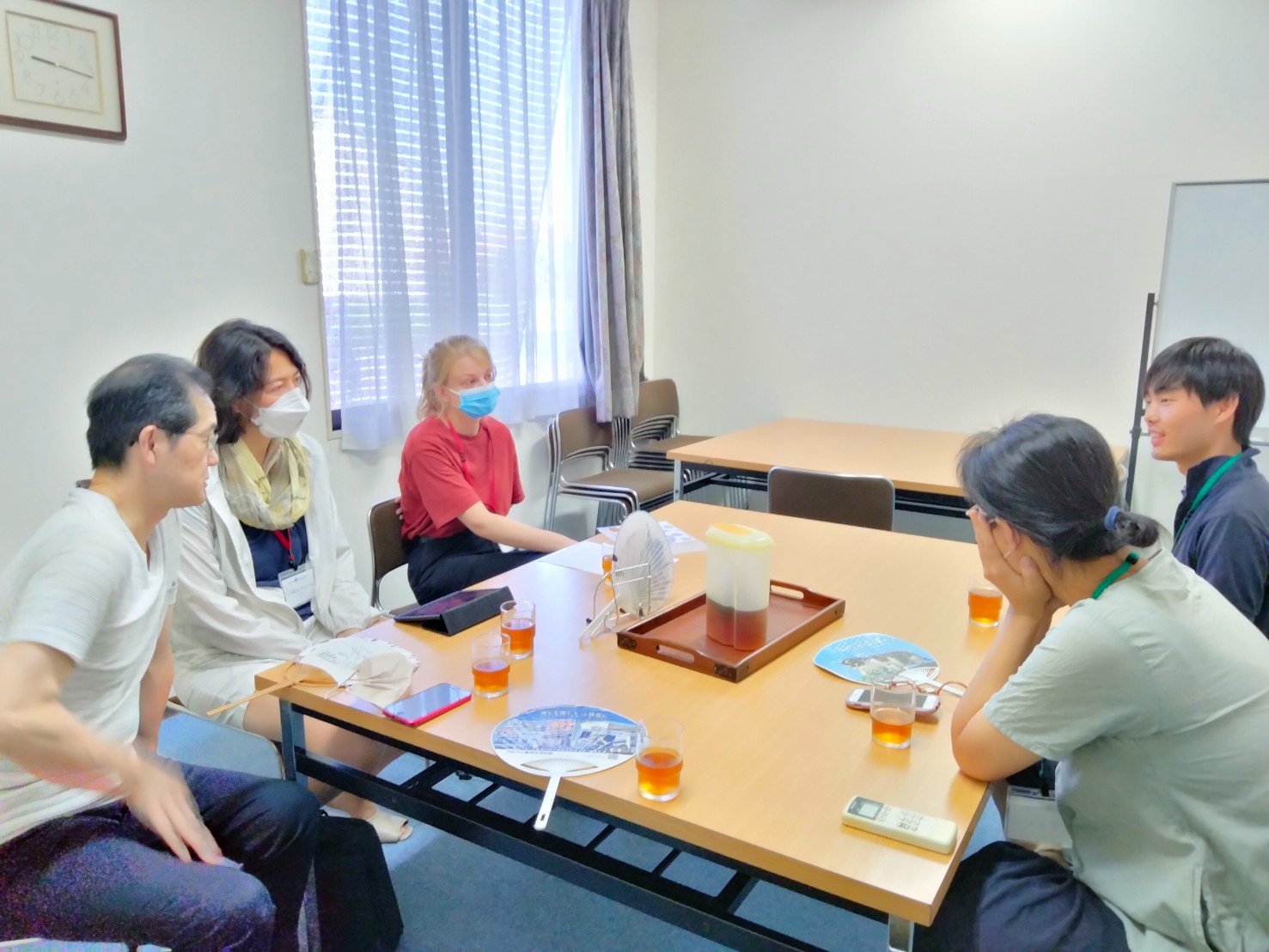 Time to interact with "Tacky" and "Heungmi" who live in the Suzuka community.
Time to interact with "Tacky" and "Heungmi" who live in the Suzuka community.
( Brief sketch, part 2)
I was eating in the dining room with five-year-old Sakuto when I spoke to him because he was using children's chopsticks with two pieces connected to each other.
Sakuto said,
"I can't use adult chopsticks yet.
But Sara can.
And Haru can use chopsticks, too.
Akari can't use them yet."
Sakuto talks about each of the children in the community he is growing up with.
What are they like to each other?
It seems that there is no such thing as "that child is usable but I' m not, I'm useless", which is interesting, but I wonder if that is really the nature of human-beings.
The cicadas that keep chirping, the clouds that rise, and the ears of rice that grow, if they were to compare them to the cicadas, clouds, and ears of rice next to them, it would make me laugh out loud.
When Sakuto was playing in a nearby park, a construction man was building a prefabricated warehouse. Sakuto stayed beside him for a while and watched.
He started handing screws one by one to the construction worker.
When he finished one screw, Sakuto said at the perfect moment,
"Hi!"
and handed the screws to the man.
The construction worker responded,
"Hi!"
And then one by one, one screw after another was inserted.
The exchange between the two continued until the warehouse was finally completed.
Sakuto and the construction worker had never met before.
And what is it that they were communicating with each other?
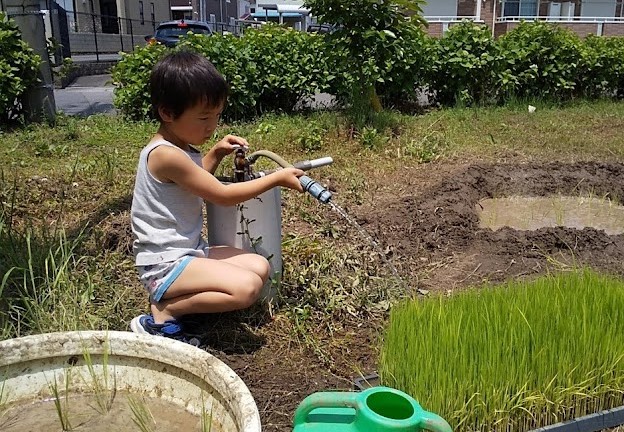 " growing up in the community. Imitating his dads? Making mini rice paddies to grow rice
" growing up in the community. Imitating his dads? Making mini rice paddies to grow rice
(Brief sketch, part 3)
Another scene. At the weekly [family meeting] of our community.
Junna.
(Opening) Ah, now that everyone is finally here, I can talk - I've been itching to tell you guys something, and I've been waiting for it since a while now...
Nanako.
(In the middle of the meeting) Oh, what should I do? I still had something to tell you. Can I go on and talk about it? I've been waiting for the meeting since last night ...
Where does this feeling of wanting to talk to [family members] of our community and have them listen to me even when they' re 40 or 50 years old come from?
"Hey, Mom, listen to me. listen to me."
I guess it's only natural, since that's how we all grew up....
( Brief sketch, part 4)
Valerie Madoka is an architect and filmmaker. She was born to a Japanese father and a German mother. She grew up in Germany all her life and speaks very little Japanese. In Germany, her father did not speak Japanese at all, and he never taught her.
She is currently trying to create a short artistic piece about the Suzuka community.
When we were eating together, I said to her,
"You are good with chopsticks.
"My father didn't teach me Japanese, but he taught me how to use chopsticks.”
She laughed.
"Oh yeah, do you want some natto?"
I asked her.
"My father used to eat natto, and I tried it once, but I couldn't."
She said.
I remember a TV program on a foreigner who had eaten all kinds of delicacies from all over the world, and he tried his hand at natto. He was very confident, but he gave up immediately after smelling it.
Madoka looked at me curiously while I was eating natto, saying it was delicious.
I think "likes" and "dislikes" are not very meaningful things at all.
It is simply created by the environment, and can be changed in any way depending on the environment.
It is a relative thing, but we make it into an absolute value in our mind, which is a very stupid thing to do.
Is "good/bad" and "superiority/inferiority" the same thing? It's all in our mind.
They have nothing to do with "the thing, the person, itself"
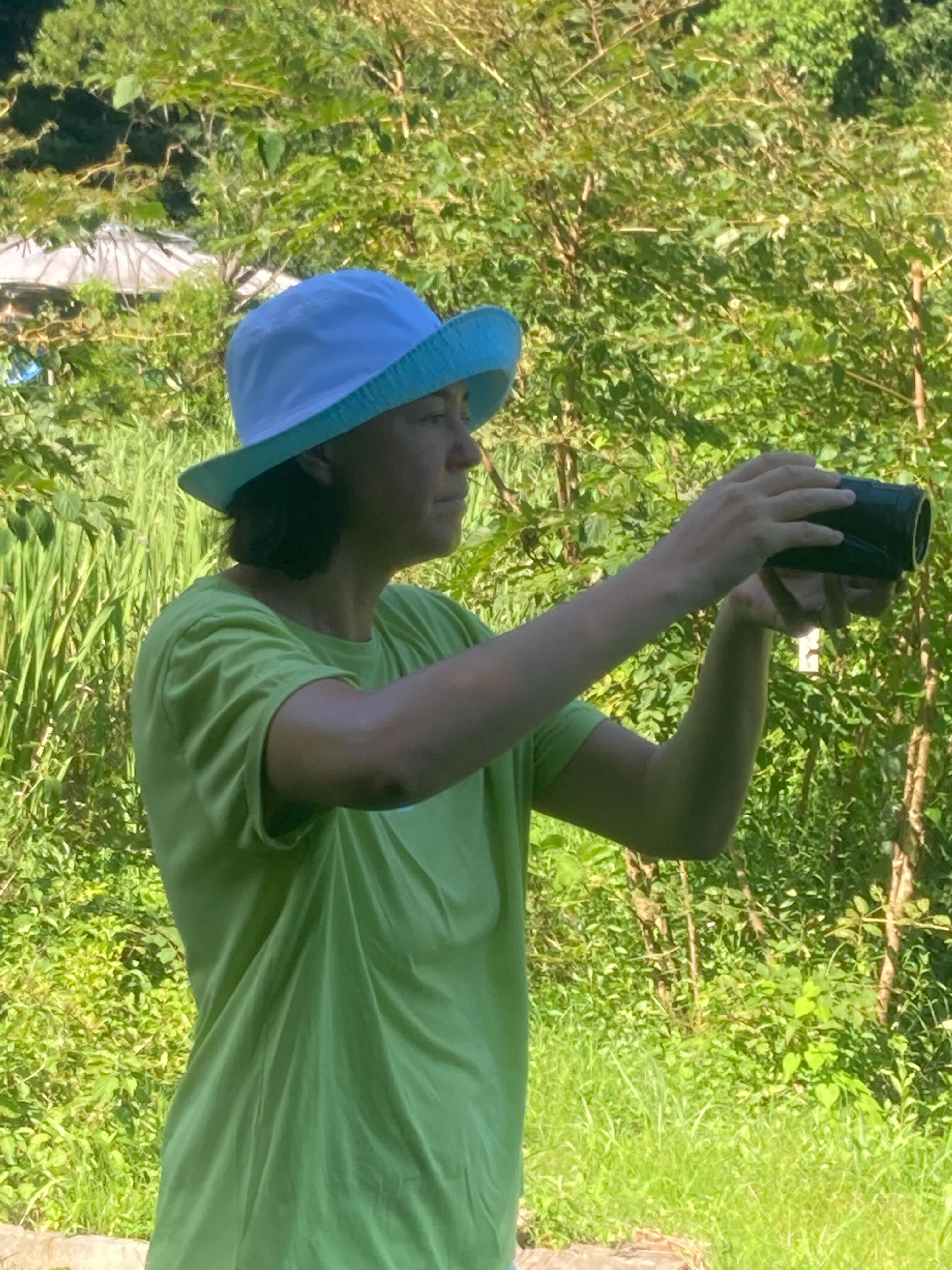
Valerie is an architect and filmmaker. "I want to tell the story of the community through images."
Madoka, Nanako, and Naoe
It was the first time the three of them met and had dinner in the dining room.
Madoka, who can speak German, French, and English fluently but understands almost no Japanese, Naoe, who has stayed in Australia for two years but cannot speak English at all, and Nanako, who has lived in Brazil for over 20 years and admits to being halfway through Japanese, Portuguese, and English, were all worried before dinner, wondering if they would be able to communicate with each other. After dinner, the three of them, all in the same age bracket, were like old friends or even sisters in girl talk. I thought I was the most fluent English speaker among the three, but I was left behind, unable to keep up with their fast-paced conversation.
Until just an hour ago, these three had never met or talked to each other.
Without this chance, they might never have gotten to know each other in their entire lives.
It's so amazing how "people to people" are...what is it about?
Summer days Brief sketch in the Suzuka community, one corner of the earth.
Each of these sketches may seem to be a common scene that could be found anywhere in the world.
But why is it that they do not feel separate from each other, even though the scenes and people are different from each other?
The visible appearances are all different from each other, but I wonder if they are somehow connected to the source from which they emerge.
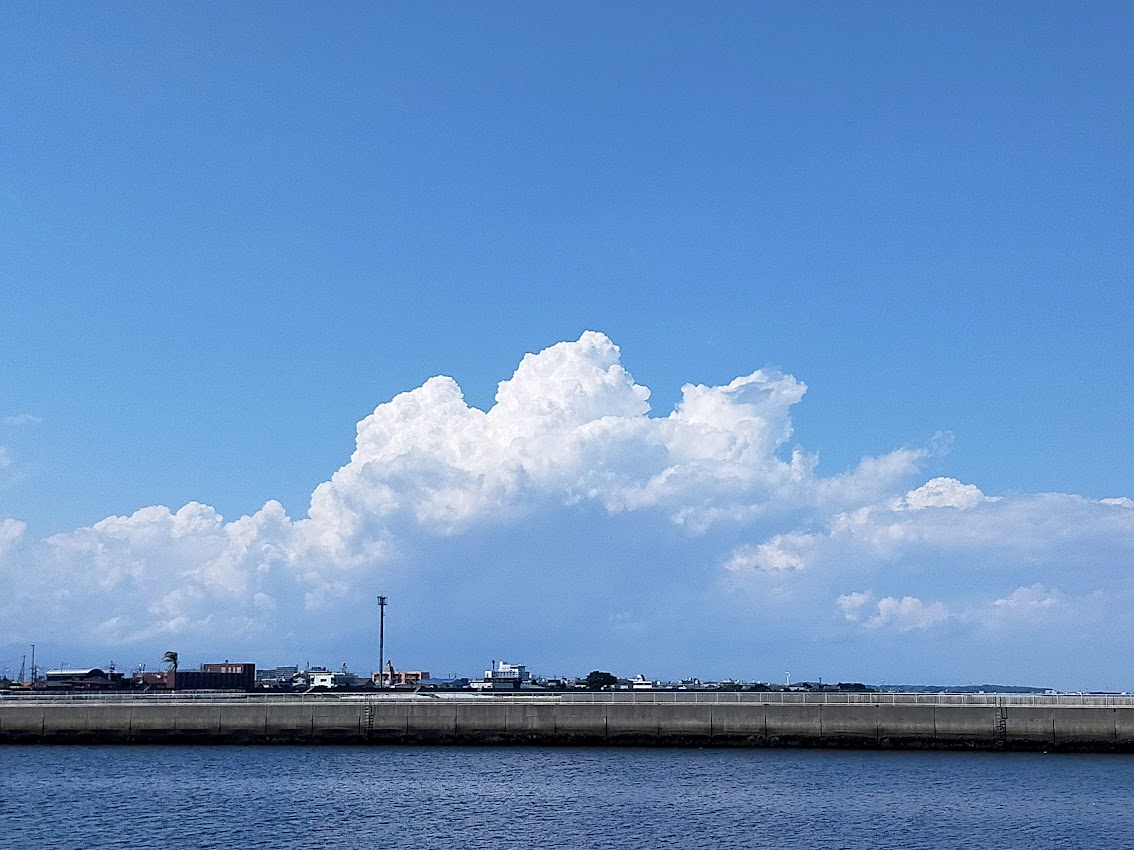
Summer sky seen from Suzuka Shirako Port
The summer clouds that spring up day by day, changing their appearance.
Where and how do they come from?
We "people" and "people to people" change our expressions day by day.
What is the origin of the emergence?
And then,
Any appearance that comes to the surface
Every figure
Any expression
I adore...
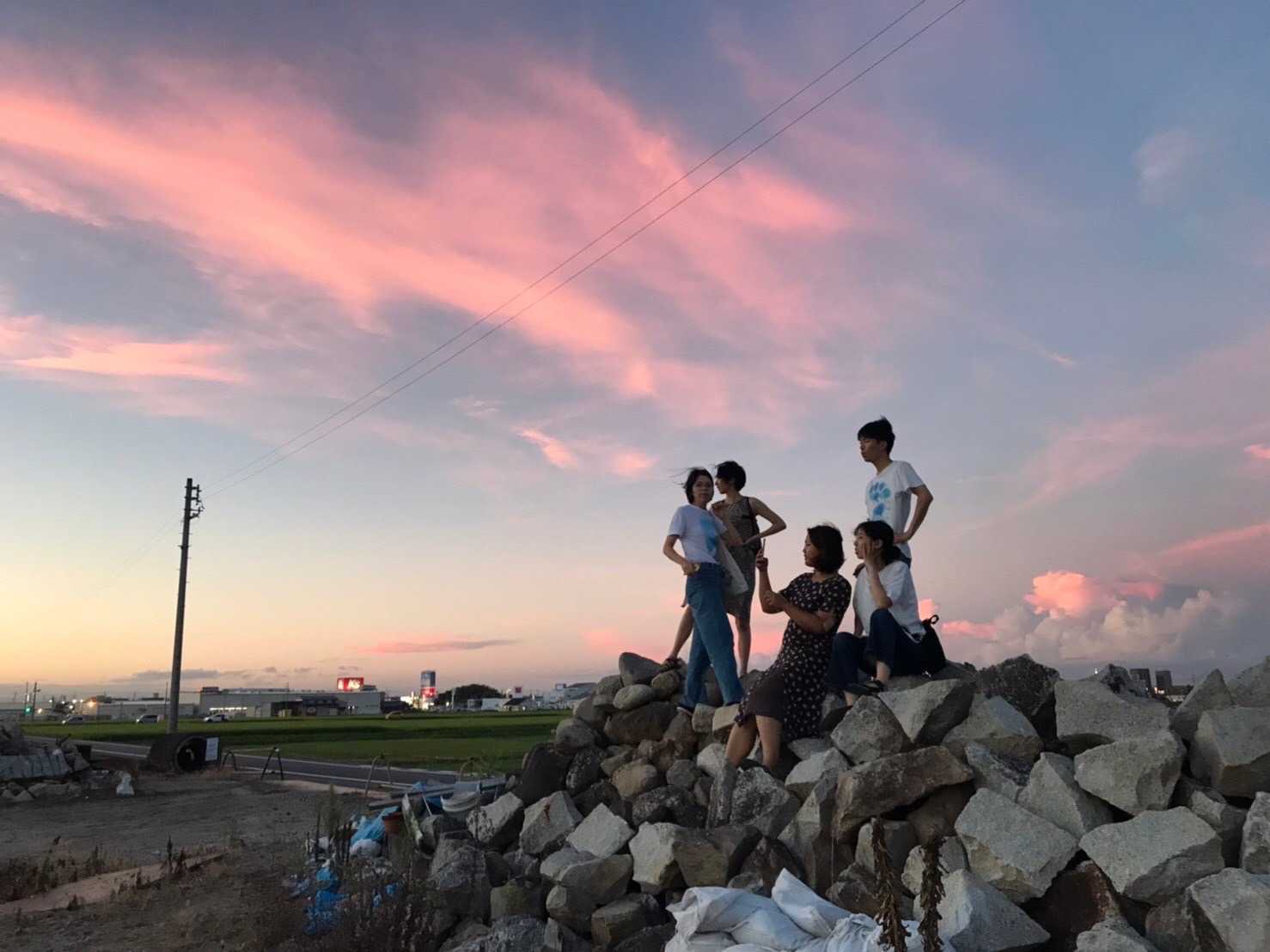
Academy students studying at Suzuka Community 【Everyday life watching the sky together】